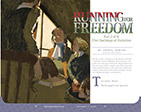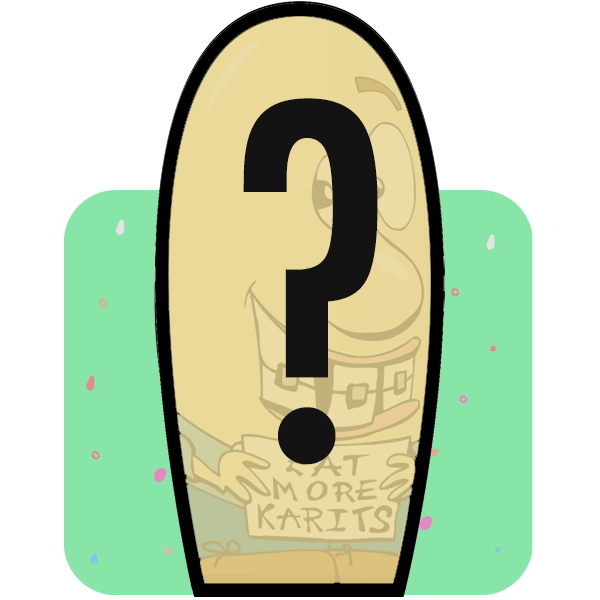That tickles, Mama!” Marika giggled
and squirmed.
“Stand still,” Mama told her. “If I
don’t measure right, it won’t fit.”
Outside, the fall leaves on the
trees shimmered golden yellow and deep red under skies filled with birds flying
to warmer patches of earth. Inside, it was time again for Mama to sew.
Mama had brought her sewing tools
and an armload of old dresses from her own wardrobe and those of relatives and
set everything in the living room. It was always a big job to measure, pin, and
sew new outfits for the family, but it was even harder to take dresses made for
grown women and cut them down for active young girls.
Partly to cheer up the girls and
partly out of necessity, Mama chose that day to start making them a fresh
wardrobe. All three wore the required school uniform with a red bandana tied around
the neck, but they still needed plain dresses for home, play, and window
shopping, and one nice dress for Sabbath.
Mama slipped a bulky white dress
with blue flowers over Marika’s slim figure and started pulling the fabric here
and there to see where it needed adjusting, which was pretty much all over.
Marika glanced curiously down at
the faded cloth covering her. She knew they were living in hard times; all her
friends and relatives wore hand-me-downs that were mended and altered again and
again. Even Mama’s dresses had belonged to someone else first. Marika was happy
to get something newer to wear, yet she still longed for a brand-new dress of
her own. Someday, she thought, I’ll learn to make my own new clothes.
“Raise your arms,” Mama told her. With
a lifetime of skill, she pinched the excess cloth hanging underneath and slid
pins in where she’d sew darts and seams later by hand, with salvaged thread.
Then she pinned in the waist and measured how far up to raise the hemline.
“There, that should do it,” she
said, sounding satisfied. “When I take the pieces apart and put them back
together again, I’ll take off the big buttons and ruffles, and anything else
you don’t like. Maybe I can crochet some lace on the collar to make it
prettier. What do you think?”
Marika shrugged. She was happy with
the dress, but a lace collar wouldn’t make it look new.
“OK, Erzsébet, your turn.”
“Which one is mine?” she asked
eagerly.
“I thought that pink plaid one
would be just right for you.” Mama pointed to a dress that used to belong to
Ilona.
Erzsébet touched it without saying
anything, then brought it to Mama and climbed on the stool.
“It’s pretty, Mama, but the hem is
stained.”
“I know; I saw that. After I take
the hem up to fit your short little legs, the stain won’t show anymore. OK?”
She gave Erzsébet a little tickle.
Erzsébet had been sickly when she
was little, and now spent more time with Mama than with her older sisters. She
looked at Mama’s gentle eyes and nodded, satisfied.
A sudden wind outside shook leaves
from the trees and tossed them against the window. Marika worried about Papa
working out there with Violet, the family’s donkey, hauling coal and firewood
in his heavy wooden cart to people’s homes all over town. A strong wind meant
lots of dust; Papa suffered from frequent headaches, and dust could bring on a
bad one.
Just then the front door opened,
and Papa came striding into the house.
“How’re my girls?” he greeted in a
tired voice.
All three ran to hug and kiss him.
He gave them each a big bear hug in
return. Then he rubbed his wind-blown hair and plopped down on one end of the
sofa for a quick rest before washing up for dinner.
“Did you finish your deliveries?”
Mama asked.
“Oh, sure. I even stopped by my
folks’ house and gave them what was left over.”
“Papa,” Ilona spoke up.
“Yes,” he sighed, eyes closed.
“I have a question about school.”
“What is it?” he asked wearily.
“Our teacher wants us to learn
about evolution. He says that all people came from apes and that God isn’t
real. What should I say when he asks us to talk about it in class? I don’t want
to make him mad.”
This got Papa’s attention. He
opened his eyes and fussed with his mustache, thinking.
“That young fellow’s a Communist,
isn’t he?” Papa asked.
Ilona nodded and looked to her
older sister for support.
Marika and Ilona were now in eighth
grade. Marika had hoped this school year would be better than the last, with
more friends and better grades. But it was exactly the same as before.
“He’s mean, Papa,” Marika piped in.
“I get scared because I know he wants us to agree with him . . . but he isn’t
right about the apes, is he?”
He gave them a smile.
“No, he isn’t right. Look here, I
can show you where God explains all about it.” He reached for his Bible on the
end table and opened it to the front. “It’s right at the beginning, in the book
of Genesis. Here, Ilona, you read it out loud so your sisters can hear while
Mama keeps working.”
So she read about God forming Adam
and Eve, the very first people, and how Adam was given the job of naming all
the animals. It was a wonderful story, but there was nothing there about
evolution or monkeys turning into humans.
“OK, you’re finished,” Mama told
Erzsébet. “Step off the stool; it’s Ilona’s turn.”
Marika took the Bible from Ilona
and looked at those first chapters of Genesis. She already believed in God with
all her heart, but it was good to know where the answers to her teacher’s
challenges lay hidden.
“But, Papa, you haven’t told us
what to say,” Marika reminded him. “Our teacher doesn’t believe in the Bible.”
“Listen carefully, girls,” he said.
“We must always be willing to stand up for the truth, even if someone doesn’t
agree with it. Next time he teaches about evolution, if he calls on you, tell
him you don’t believe in it. Then explain respectfully what you do believe
in—the Word of God and the story of creation. It’s more important to speak the
truth than to worry about who believes it.”
Marika looked up at Ilona and
swallowed hard. Papa was right, of course, and they must obey him. But would
they have enough courage when the time came?


